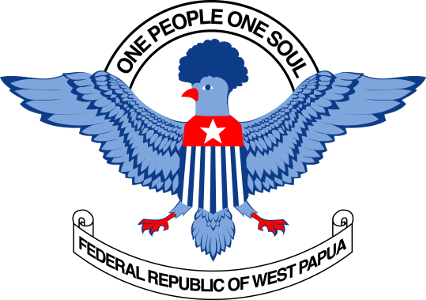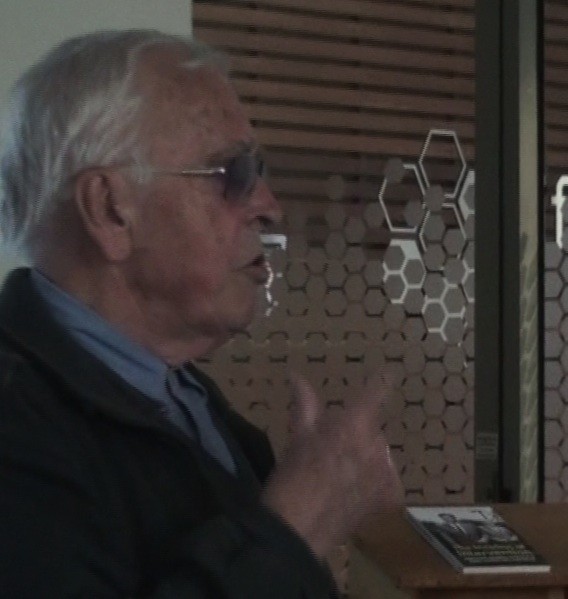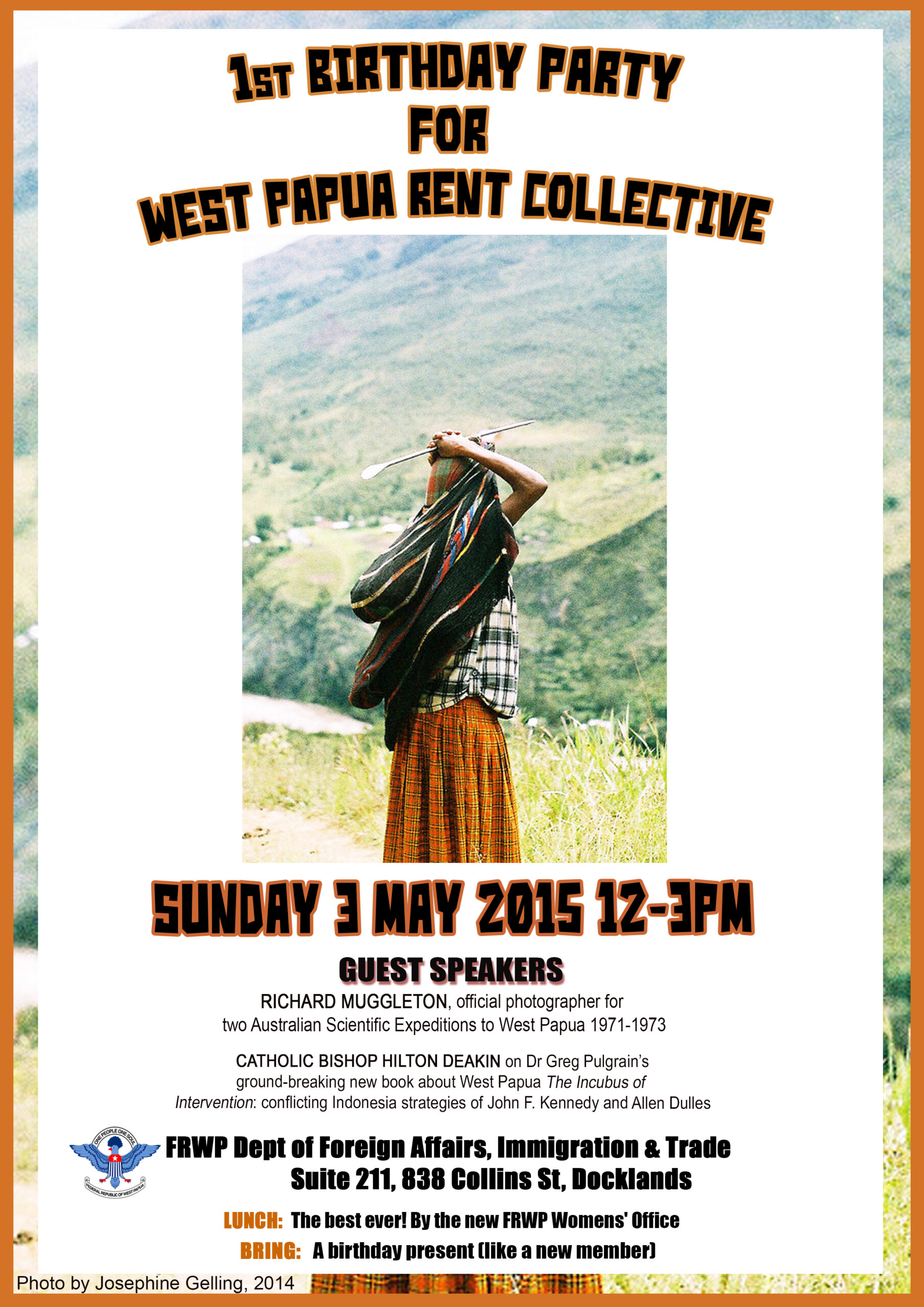
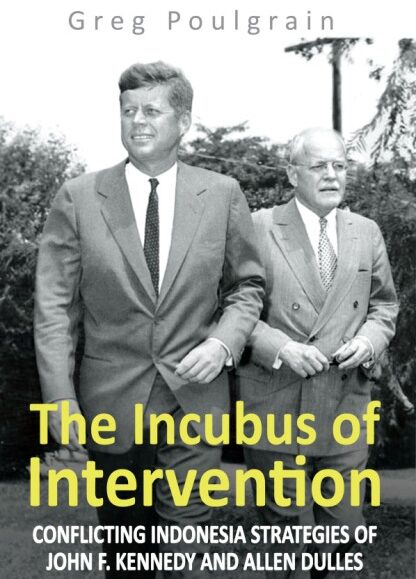
Australian Catholic Bishop, Hilton Deakin, launched Greg Poulgrain’s new research The Incubus of Intervention: Conflicting Indonesia strategies of John F. Kennedy and Allen Dulles at the Federal Republic of West Papua office in Docklands on 3 May 2015.
Bishop Deakin, who is well known for his support of East Timor’s liberation from Indonesia, re-launched the book in Trades Hall on 15 May 2015 where the Australian trade union movement had assembled to sign a Memorandum of Understanding with the Federal Republic of West Papua. The book was launched again during the Melanesian Spearhead Group meeting in Honiara (Solomon Islands) in June 2015.
An important work. Very, very impressive and certainly dates our subjugation to the US, not to Curtin’s wartime comment, but to the 70’s Vietnam, Indonesia and the coup
LTCOL Lance Collins (ret.), Co-author, Plunging Point: intelligence failures, cover-ups and consequences (2005); A Dowry for the Sultan: A tale of the siege of Manzikert 1054 (2016)
Bishop Hilton Deakin’s (12min) Review https://youtu.be/nwDv54xhNks
Transcript (2xA4) Transcript, Bishop Hilton’s review
“This book is a very dense text. You look up the sources of information that Greg Poulgrain has used over many years, and you’ll see just how this man has tried to put this thing together and make sense of it. Not only is it dense, but it’s disturbing. And I think when you get hold of a book that disturbs you, it’s worth reading” (Bishop Hilton Deakin)
“I hope it furthers the cause of the West Papuan struggle for freedom and independence. Because in the long run, nature gave them these gifts, not to the bigwigs in the United States and Indonesia, but to them, and it should be theirs” (Bishop Hilton Deakin)
The book’s back cover text
Sukarno was at the centre of the conflict between John F. Kennedy and Allen Dulles (Director of Central Intelligence). With the intention of removing Sukarno from power, Dulles’ strategy of ‘regime change’ was well-advanced before Kennedy became president. Indeed, his intelligence-career started before Kennedy was born.
In 1958 DCI Dulles was at the height of his power. He was not simply targeting the Outer Islands in Indonesia, but the entire Indonesian archipelago, including Netherlands New Guinea where the world’s largest gold deposit was located (and is today still being mined).
Unlike Dulles, neither Kennedy nor Sukarno was aware of this El Dorado. But when the author interviewd Joseph Luns, the former Dutch Foreign Minister who became NATO Secretary-General, said that he had asked the Americans to exploit the huge gold deposit jointly with the Dutch. It was their refusal, Luns said, that actually forced the Dutch out of New Guinea.
When Kennedy and Sukarno resolved to work together, US foreign policy threatened to disrupt Dulles own Cold War strategy, which was then focused on Indonesia. JFK’s wariness, after Dulles’ role in the Bay of Pigs, drew his tongue-in-cheek but prophetic comment that ‘Domestic policy can only defeat us, but foreign policy can kills us’ [Back cover text].
Dr Greg Poulgrain teaches Indonesian History, Politics, and Society at the University of the Sunshine Coast, near Brisbane, and is also the author of Genesis of Konfrontasi: Malaysia, Brunei and Indonesia 1945-65. Dr Baskara T. Wardaya, who wrote the foreword, teaches history at Sanata Dharma University in Indonesia. In 2011-12 as a Fullbright Scholar he taught history at the University California-Riverside. His works include Bung Karno Menggugat, 2006 (‘Sukarno accuses’); Cold War Shadow, 2007; and Truth will out, 2013
Thirty years of research underpins Greg Poulgrain’s claim that Allen Dulles (CIA Director 1952-1961) arranged for the death of Dag Hammarskjöld, thus precluding the UN Secretary-General from presenting his Decolonisation Program for West Papua to the 1961 UN General Assembly. Poulgrain believes “Hammarskjöld’s formula would have changed history, principally because it recognized Papuan sovereignty over Papuan land”. Within weeks of his research being published in 2015, the UN announced a review of circumstances surrounding the aeroplane crash in 1961 that killed Hammarskjöld.
Media Statement, Greg Poulgrain, 3 May 2015
Greg Poulgain, Media Statement, 28 April 2015
Solomon Islands Book Launch, Honiara, 19 June 2015
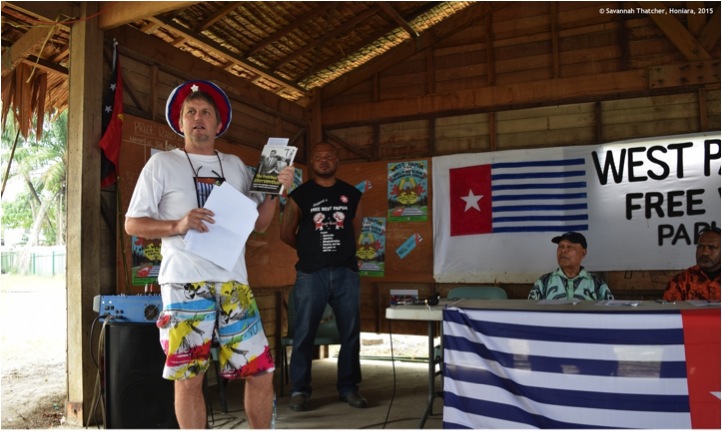
Ned Byrne, launching ‘The Incubus of Intervention’, MSG Seminar, Honiara, Solomon Islands, 19 June 2015 (Photo: Savannah Thatcher)
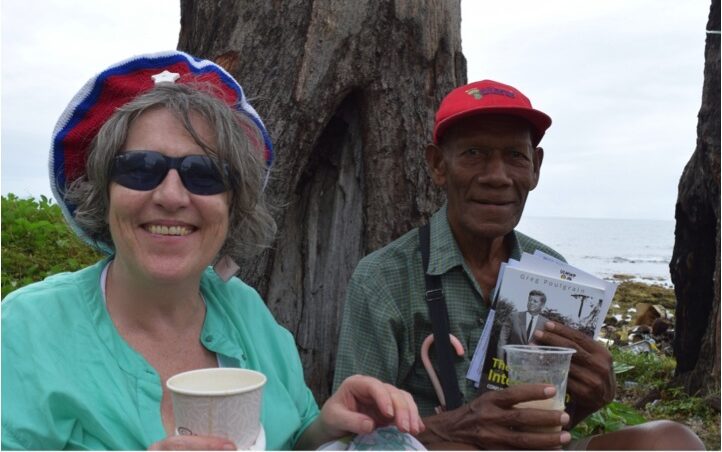
Louise Byrne, Honiara, 19 June 2015, with a very keen Solomon Island scholar (Photo: Savannah Thatcher)
